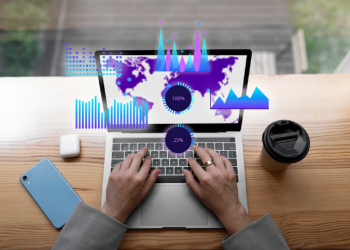Website development has always been at the heart of the digital world, but in 2025, the game has changed. With the rise of artificial intelligence (AI), building, managing, and optimizing websites is no longer a process reserved for coding experts alone. Businesses, entrepreneurs, and even individuals are now leveraging AI tools to create smarter, faster, and more personalized websites.
So, how exactly is AI revolutionizing web development? Let’s explore.
AI-Powered Website Builders
One of the biggest breakthroughs in modern web development is the arrival of AI-powered website builders. These platforms can generate full websites in minutes, using just a few prompts provided by the user. Instead of spending weeks on design and coding, AI tools now suggest layouts, color palettes, and typography that align with a brand’s identity. They also ensure that every website is automatically mobile-responsive, which is crucial in today’s mobile-first world. For startups or small businesses, this means reduced costs and a dramatically shorter time to launch.
Smarter User Experience (UX) Design
AI is also transforming the way websites are designed for user experience. By analyzing user behavior, heatmaps, and interaction data, AI tools can identify what visitors are looking for and how they navigate a site. This information allows businesses to personalize content for individual users, optimize navigation, and even run AI-driven A/B tests to discover which designs perform best. The result is not just a visually appealing website, but one that is intuitive, engaging, and built around real user behavior.
Chatbots and Virtual Assistants
Customer support has taken a huge leap forward with the integration of AI chatbots and virtual assistants. These tools provide instant answers to customer queries, guide users through purchases or bookings, and operate around the clock without additional staffing costs. For businesses, this means improved efficiency and higher conversion rates, while for users, it translates into seamless support and a better browsing experience. AI chatbots are no longer simple scripted bots—they are adaptive, conversational, and capable of handling complex requests.
AI for Content Generation and SEO
Content creation and search engine optimization are two areas where AI has become a game changer. Today’s AI tools can generate product descriptions, blogs, and landing pages that are optimized for search engines. They analyze keyword trends, competitor strategies, and user intent to craft content that ranks well on Google and other platforms. Many AI systems also provide real-time SEO recommendations, helping businesses fine-tune their content strategy. This allows even small teams to compete with larger companies in terms of online visibility and digital marketing reach.
Enhanced Security and Maintenance
Website security and maintenance have always been critical, and AI is making these areas more robust. With advanced algorithms, AI can detect suspicious activity and prevent fraud in real time. Predictive maintenance features can identify potential technical issues before they become serious, reducing downtime and ensuring reliability. Automated updates and backups further minimize the risk of disruptions. By integrating AI-driven monitoring and diagnostics, businesses can operate with greater confidence knowing that their websites are safe and dependable.
Voice and Visual Search Integration
As digital interactions evolve, voice and visual search are becoming increasingly important. AI is leading this shift by enabling websites to support voice commands and image-based searches. For example, retail websites can now allow customers to upload an image and instantly find similar products. Likewise, voice assistants make it easier for users to navigate sites without typing. These features not only enhance user experience but also align websites with future trends in digital engagement, making them more accessible and forward-thinking.
Final Thoughts: The Future of AI Website Development
AI is not here to replace developers—it is here to empower them. By automating repetitive tasks and providing intelligent insights, AI allows developers to focus on creativity, strategy, and innovation. The future of web development will be shaped by self-optimizing websites, hyper-personalized user experiences, and deeply interactive digital spaces.
If you are planning a new website in 2025, embracing AI-driven tools is no longer optional—it is the key to staying competitive in the digital age.









